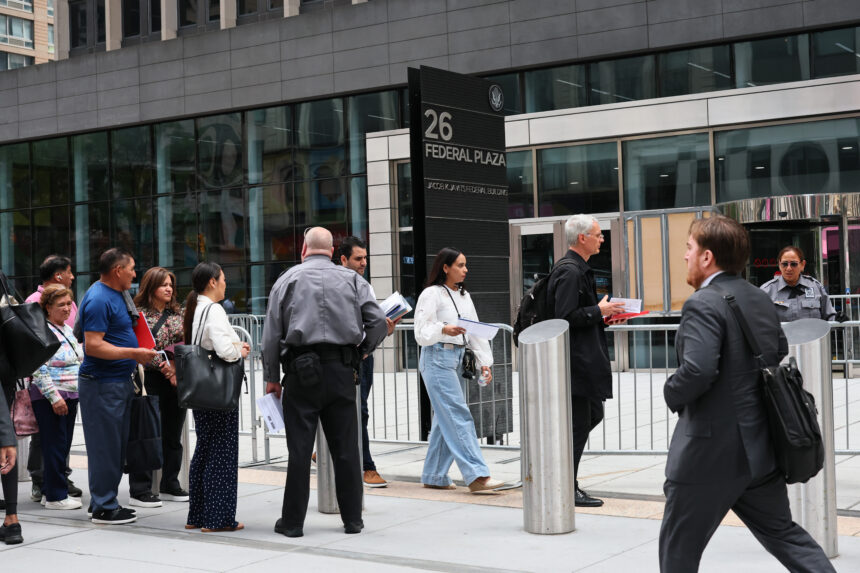Immigration rights organizations, lawyers and activists have issued a strong alert after confirmation that Immigration and Customs Enforcement (ICE) agents are detaining immigrants as they leave their immigration hearings, even when they do not have criminal records and are complying with their court dates.
The practice has been documented this week in multiple U.S. cities, including Miami, New York, Los Angeles, Phoenix and Chicago, according to reports from lawyers and media outlets such as the Associated Press. It has also been publicly denounced by activist Carlos Eduardo Espina, who has received multiple testimonials in his online community.
A new tactic that threatens confidence

According to immigration attorneys, the new strategy consists of government prosecutors requesting that the case be dismissed at the hearing, leading the immigrant to believe that he or she is being released.
However, when he leaves the courthouse, ICE agents are waiting to detain him, applying what is known as expedited removal under executive authority.
The move would be related to a coordinated effort by President Donald Trump’s administration to speed up arrests and removals, especially now that new executive orders on immigration enforcement have been implemented in 2025.
Who is at risk?
According to reports compiled by the American Immigration Lawyers Association (AILA), the arrests have included individuals:
No criminal record
Who are seeking asylum
No legal representation
Who went to court complying with the requirements of the process.
This represents an alarming shift in immigration policy, as traditionally immigration courts have not been the scene of arrest, except in serious cases or those with criminal records.
What do advocates say?

Legal experts warn that this strategy could have a “devastating” effect on migrant communities.
Many immigrants who have followed their legal process with discipline – some with years of waiting for their hearing – now fear that going to court is, in reality, a trap to be detained.
Esta práctica puede destruir la confianza en el sistema y causar que miles de personas simplemente no se presenten más a sus audiencias
QuéOnnda.com
The fear is not unfounded: missing a court date can result in a deportation order in absentia, further complicating the picture for any future defense.
What does the legal community recommend?
In view of this situation, experts recommend immigrants to:
- Consult with an attorney prior to each immigration appointment.
- Do not attend your hearings alone if possible.
- Have identity documentation, immigration history, and proof of roots (such as tax payments or rent receipts) on hand.
- Inform a relative or trusted person about your whereabouts and legal situation.
Who is responsible for this?
Neither the Department of Justice nor the Department of Homeland Security has offered full statements.
ICE, for its part, confirmed that arrests are being made under expedited removal authority, but did not clarify whether there is a coordinated protocol for operating in or around courthouses.
For many immigrants, these courts represent the only opportunity to defend themselves against a deportation order.
But if attending them becomes grounds for arrest, the question arises: is there any justice left for those who still believe in the rules of the system?
For more news, visit QuéOnnda.com.























